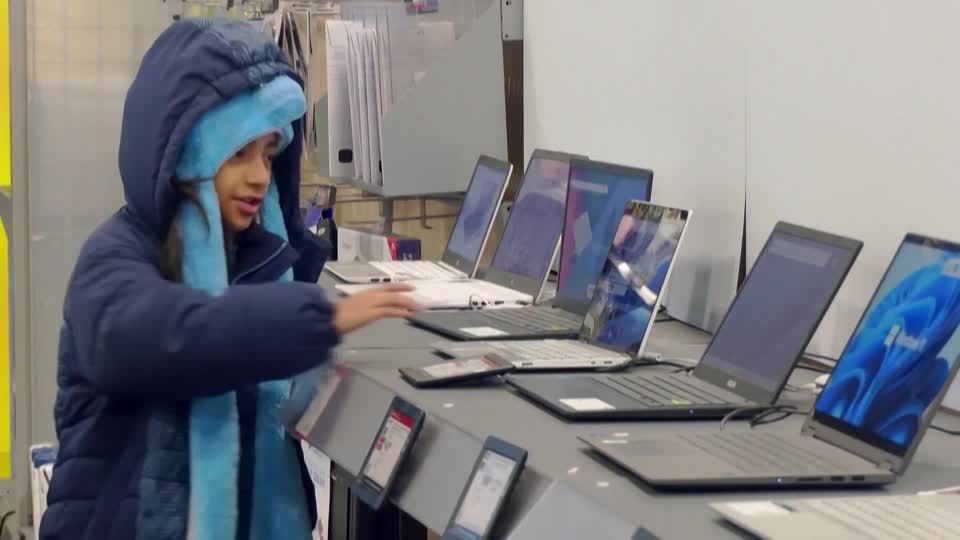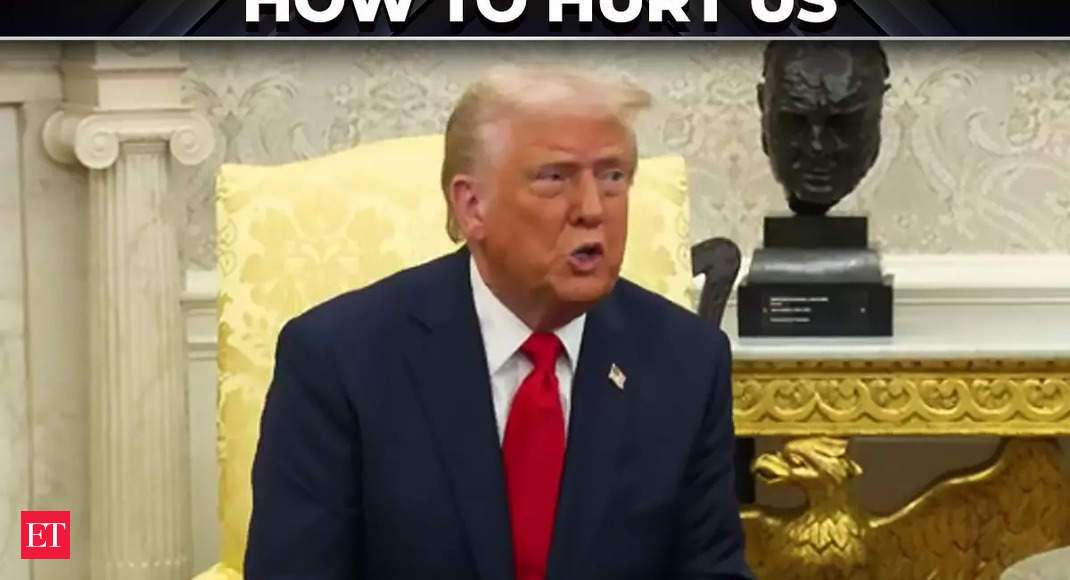STORY: President Donald Trump’s administration granted exclusions from steep reciprocal tariffs on smartphones, computers and some other electronics imported largely from China, providing a big break to tech companies that rely on imported products.
In a notice to shippers late on Friday, U.S. Customs and Border Protection published a list of tariff codes excluded from the import taxes – retroactive to April 5 – covering 20 broad product categories such as computers, laptops, disc drives, automatic data processing, and more.
While the White House did not explain the move, a spokesperson said the exclusion only applies to Trump’s reciprocal tariffs on Chinese goods, which climbed to 125% this week.
Trump’s action also excludes the specified electronics from his 10% “baseline” tariffs on goods from most other countries, easing import costs for semiconductors from Taiwan and Apple iPhones produced in India.
The president’s prior 20% duties on all Chinese imports, which he said were related to the U.S. fentanyl crisis, remain in place.
White House spokesperson Karoline Leavitt said in a separate statement that Trump has made it clear the U.S. cannot rely on China to manufacture critical technologies such as semiconductors, chips, smartphones, and laptops.
She added that at Trump’s direction, major tech firms including Apple and chipmakers Nvidia and Taiwan Semiconductor, quote, “are hustling to onshore their manufacturing in the United States as soon as possible.”
The exemptions suggest an increasing awareness within the Trump administration of the pain that his tariffs had in store for inflation-weary consumers, especially on popular products like smartphones.
Analysts predicted that the price of a top-end Apple iPhone could jump to $2,300 from $1,599 with a 54% tariff rate. At 125%, economists and analysts have said that U.S.-China trade could largely halt.
Earlier this week, financial markets were in turmoil as Trump announced sweeping “reciprocal tariffs” on U.S. trading partners.
Trump’s tariff policies have raised fears of a U.S. recession and drew criticism from his fellow Republicans.

